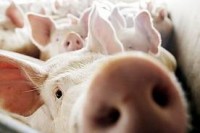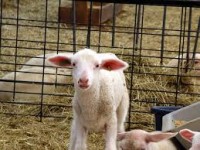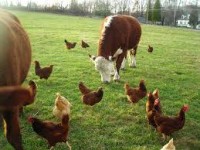Changing behaviour
I am sure that I am not the only person over fifty to feel that it is getting harder to keep up with new trends, technology and a rapidly changing world. It’s no longer information overload, I seemed to have survived or be surviving that. Now it’s outsourcing everything including our autonomy, personal responsibility and any skill we may have once possessed, to an app. Moreover it seems that social media plays a more important role in our lives than visiting our neighbours for a cuppa.
But is this entirely as alarming or as worrying as it first appears?
I observe that changing peoples’ behaviour is more difficult than changing their minds, it takes longer. Yet there are some pretty amazing positive changes in behaviour occurring in the Western world at present driven by social media.
What if your reluctance to change your behaviour really was having a detrimental impact on others or the planet?
One acre of land can yield 20,000kg of tomatoes, 22,000kg of potatoes, 16,000kg carrots and only 12okg of beef
This post will highlight the rapid changes that are happening in the world in the form of attitudes to animal consumption and much to my amazement, the role that modern information technology can play in changing our behaviour.
The most important changes are definitely not easy. This was highlighted to me recently in a film I was invited to see that presented the harsh facts surrounding the global environmental devastation wrought by animal agriculture.
A person who is vegan will save 3,000litres of water, 8kg of CO2 equivalent, 2 square meters of forested land, 22kg of grain and one sentient animals life every day.
Perhaps the new ‘world leaders’ really are the social media gurus evidenced by the massive rise in veganism this year alone in response to a ‘no holds barred’ attitude to reporting world affairs by a rogue independent group of journos bringing a non commercial perspective to food advertising.
Very effective game, or behaviour, changing in my opinion.
I didn’t think things would or could change much overnight but I have to say that the events of the past twelve months, summarized in that you tube, is a very positive example of how quickly things can change in a modern world with the right driver.
Everybody seeing these films would come to understand that producing animals for food in the modern world with burgeoning overpopulation is wholly unsustainable.
I am still inclined to believe that it will not immediately stop the behaviour of meat or dairy consumption in most people but we live in interesting times.
Nobody wants to hear or believe that we must stop consuming animal products, except perhaps vegans or animal rights activists, but the evidence is mounting that our attempts over the past few decades to keep up the demand for meat, fish, poultry and dairy products in a global population explosion has caused us to kill our planet.
250 million acres of land in the US have been cleared to make way for crops grown to feed livestock and not people.
Up until now the pawltry advice in the ‘West’ has been to use less water, drive cars less and buy local produce. These are all excellent initiatives but there is always a bigger picture that some of us like to know about and in the case of global warming, weather and climate changes and environmental degradation this is reducing an enterprise that many of us have taken for granted and has, up until now, sustained our very livelihoods; animal production or farming by any other name.
Animal production and aquaculture appears certain to not provide adequate food to feed the people we have on Earth. The idea that our behaviour needs to change now must be the overriding motivation.
We desperately need to reduce population, reduce consumption, reduce expectations, or perish.
There is enough food for everyone but not enough of the foods that many of us take for granted. Much of the food crops being produced go to feed animals for slaughter and not to the starving humanity. This could be considered criminal if we adopted a global conscience but I am equally certain that the problems of the world cannot be simply solved overnight.
We needed to change our behaviour when slavery was abolished, when women entered the free market workplace and became employers and executives and when smoking was banned from most public places to name some situations we ought to be able to recognize. We are changing the culture of bullying behaviour in schools and workplaces and we are seeing the necessity of accepting diverse personal lifestyle choices in mainstream society. One of these choices will definitely need to be to drastically reduce the reliance on animal products in our diets.
As a gourmand myself, I find this confronting and in an environment where it is impossible already to find a nourishing vegetarian option in more than one food establishment within a fifty kilometer radius (and I live in a large city!) is a serious indictment on the speed that this change may occur, or worse, possibly not.
Unlike all the changes that have gone before, this change has a definitive expiry date. According to some, we have already gone past it.
The worlds’ food supplies will run out unless we stop feeding a vast amount of them to animals in order to feed the appetite of the minority. This happens in feedlots in developed countries and grazing lands where food crops could be grown instead. Granted there are communities across the globe that subsist on non-arable lands in nomadic lifestyles that depend upon animals to wholly sustain them but these are distinct and unique minorities in remote areas on the globe.
Meateaters are actually the worlds’ most destructive minority group.
If we really cared about our role as a human being and not just as an Australian, then we might find the incentive to change our meat eating behaviour and that of the food establishments that feed us.
Consumer demand is the driving force in a free economy. We have seen this already with the rise in availability of gluten free foods or nonGMO produce. We are the consumers and as difficult and convoluted as we choose to make the problem, I have family and friends who farm animals and I am a veterinarian, we all have to face the necessity of change. 
Of course there be fallout from this proposed mega behaviour change that will require major initiative and skill to manage well. The existing farmed animals will need destocking or rehoming and the farmers will need to be supported to develop new livlihoods and implement plant based or alternative enterprises. We will also be faced with the dilemma of how to best feed our pet cats and dogs without species appropriate food readily available. The majority of our western world’s household pets already eat artificial foods so they may adapt better than us in the new meat free world. Plant based foods will be the only option in an ideal future. Better for us but worse for dogs and cats unfortunately. For better or worse, pet ownership at least is already declining in Australia.
The premise that animal agriculture is unsustainable warrants immediate consideration and action because time is running out for this change in our behaviour as we exceed population six billion, all expecting to reach age ninety.
The alternative and ultimate choice, keep eating animals and animal products whilst many human beings in the world die along with them or accept that a change of behaviour is necessary as soon as possible.
Our choices and our behaviour determine the shape of our society.
Change your inner attitude first!
Your outer environment
Will automatically change.
Sri Chinmoy, Seventy-Seven Thousand Service-Trees, Part 1, Agni Press, 1998
Determination
Can change your mind.
Determination
Can change your heart.
Determination
Can change your life
Altogether.
Sri Chinmoy, Twenty-Seven Thousand Aspiration-Plants, Part 72, Agni Press, 1984
If you do not change your life
Willingly,
God will change your life
Forcefully.
Sri Chinmoy, Seventy-Seven Thousand Service-Trees, Part 43, Agni Press, 2005

January 15th, 2016 at 6:45 am
Hi,
great post, I take it you are vegan too?